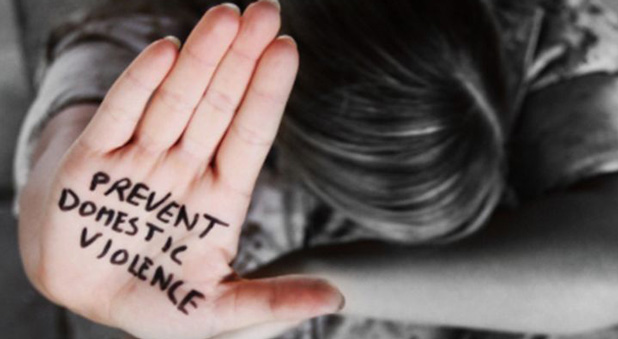Resources for churches for the International Day for the Elimination of Violence against Women 2017
Churches are encouraged to use Professional Standards Unit (PSU) material on domestic violence and prayers prepared by the chair of the Domestic Violence Taskforce, Canon Sandy Grant.
At the 2017 Synod, the following apology was passed unanimously.
We grieve with victims and survivors of domestic abuse, and pray for their healing and recovery. We give thanks to God for those women and men, clergy and lay people, who have faithfully supported, cared for and protected such victims in our churches and communities.
We grieve that God’s good gift of marriage can be distorted and dishonoured through the sin of perpetrators. We pray for their repentance and restoration to faithful living under Christ.
We also deeply regret that domestic abuse has occurred among those who attend our churches, and even among some in leadership. We apologise for those times our teaching and pastoral care have failed adequately to support victims and call perpetrators to account.
(see the coverage of the Synod DV debate here)
Prayers for use this Sunday:
Loving Lord God, we cry to you for all who are victims of violence, particularly today for beaten girls and battered women.
For women bashed in their own homes, and for their children who witness the violence; for those trapped in destructive relationships, manipulated and controlled; for the women who hide their bruises and lie about their injuries for fear of the next attack: we cry out to you: bring justice!
For young girls given or sold in marriage, and for unwilling brides with no way out; for the rape survivors who live with its scars; for women sold or tricked into the sex trade; for female-children who are unwanted or the first to be aborted and abandoned; for girls denied access to education and the women denied religious freedom: we cry out to you: bring justice!
For the women harassed in their workplaces, underpaid or threatened with losing their job; for women in prison, abused and abusing, beset by poverty, mental illness and addictions; for older women, frail in body or mind, fearful of violence, manipulation or neglect: we cry out to you: bring justice!
We cry to you, Lord Jesus Christ, for our sisters, our daughters, our mothers, ourselves. Hear us, Lord Jesus Christ, for you know what it is to be stripped and beaten, humiliated, betrayed and shamed. Amen.
+++
And God of wisdom and care, we pray to you for all whom you call to share in the work of helping girls and boys, women and men, to live, work and learn together with respect and dignity.
For maternal and children’s health workers and advocates for girls’ education; for law-makers and lobby groups, shaping structures that protect and promote women’s wellbeing; for relationship educators, developing healthy partnerships and good parenting skills; for religious leaders shaping beliefs about the worth of women and girls; for women in business, industry, politics and education, leading by example and providing role models; for police and community workers sifting through the damage done by domestic violence; for prison chaplains and restorative justice programs, giving hope where violence has shattered many lives; for counsellors and social workers offering a new start for survivors of domestic violence or sexual abuse; for women’s refuges and men’s support groups creating safe spaces for problems to be named and tackled; for campaigners against human trafficking and the sex trade, pricking the conscience of complacent societies; for the specialised care of traumatised children bringing healing and hope for a life beyond suffering: living God, in your mercy, hear our prayer.
O God, we look for your works of healing and wait for the day when you will wipe away the tears from every face, through our Saviour, Jesus Christ. Amen.
Download PDF of prayers (Based on resources from the Liturgy Commission of the General Synod, Anglican Church of Australia)
How to respond
If you recognise or suspect that you, or someone you know, are experiencing domestic violence:
- Remember that safety for the victims and any children in the household is the number one priority
- Be aware of the range of ways in which domestic violence can be experienced:
- emotional, psychological, sexual, financial, physical etc.
- As a victim: speak to someone you trust and get help from those who specialise in dealing with family and domestic violence.
- For someone you know: listen to them and believe their story.
- Help the victim to feel safe: this may mean arranging accommodation away from the home.
- Find out where to get help from those experienced in working with family and domestic violence.
- Do not talk with the perpetrator if the victim feels unsafe or asks you not to.
- If you do speak with the perpetrator, expect them to minimise or deny that anything serious is happening.
- Invite the perpetrator to take responsibility for their behaviour: this may mean attending a group program, getting individual counselling, moving out of home etc.
- Arrange for individual counselling, for both parties if possible. Remember that if there is an established pattern of power and control, relationship counselling is not suitable.
- Do not suggest to the victim that they can improve the situation by changing their behaviour e.g. by loving their partner more or being less argumentative.
- Do not ask the victim to forgive or to reconcile the relationship prematurely.
- Be aware that in some situations, permanent separation or ending the marriage is the only safe option.
- Understand that this may be a crime and may need to be reported to the police and/or Family and Community Services.
Access the full range of resources for parishes and individuals at the Safe Ministry website



























